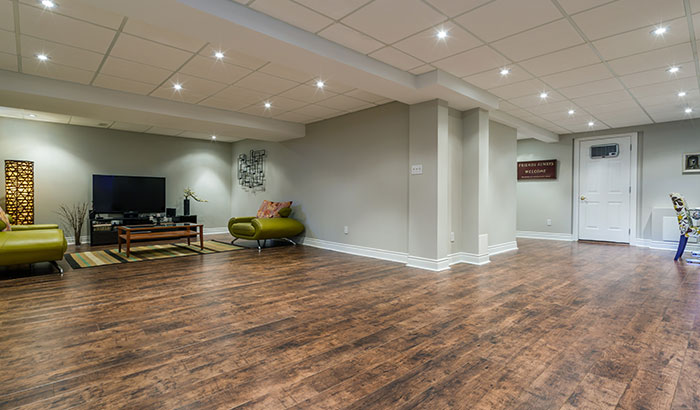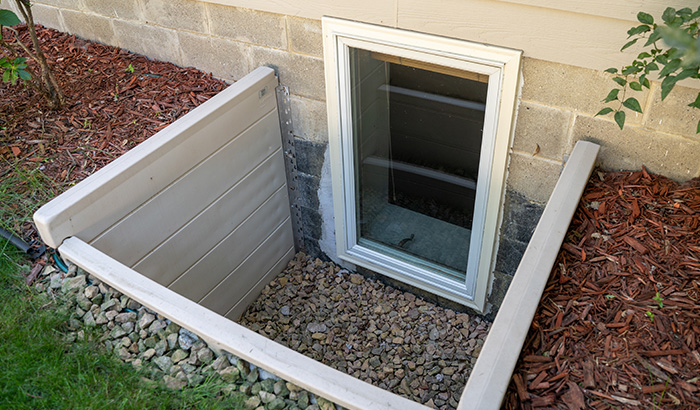Have you ever wondered if a basement is safe during earthquakes? Maybe you weren’t worried about that in the heat of the moment, but perhaps it has crossed your mind occasionally.
It’s a reasonable thing to wonder about. After all, the ground is the thing that is compressing and relaxing, so wouldn’t being in the ground be a bad idea? The answer might surprise you.
Are Basements Safe During Earthquakes?
The short answer is yes; basements are safe during earthquakes. The main reason they are safe is that basements stabilize the structure of a home. A basement reaches deep into the earth and uses concrete and rebar to create a solid foundation. This helps keep a house anchored during an earthquake.
Homes without basements don’t go very deep. The shallow foundation of a slab-mounted house doesn’t keep it as stable when the shaking starts.
The more a building is anchored in the ground, the less it will experience the same surface-level shaking that other buildings are subjected to.
The secret lies in inertia. A structure set in the ground moves with the ground. The rocking of the grounded building or structure moves in conjunction with the waves of energy passing through the earth.
A home or building built on the surface doesn’t have the same inertial advantages. Instead of moving with the seismic shocks, the building moves because of them. This disconnect puts the structures at odds with the energy moving the earth, putting more strain on the building.
Houses and Earthquakes: What Can Happen?
Your home is not only at risk of structural damage from earthquakes, but it is also vulnerable to a few other side effects.
Earthquakes can trigger other disasters that pose significant risks to your home. Here are a few:
- Liquefaction: Liquefaction can be considered the rapid settling of the land around your home. During an earthquake, the seismic waves rapidly vibrate the earth, compacting the soil and sending water to the surface. This can cause part or all of your home to sink, leading to severe structural damage.
- Cracking foundation: A cracked foundation is intuitively caused by violent shakes that overstress your home’s foundation. A cracked foundation can cause damage to the structure resting on that foundation, especially if that foundation has moved significantly due to the earthquake.
- Landslides: If you live in a mountainous or hilly area, you may be at risk of landslides. These natural disasters can happen when seismic waves disrupt the way a mountain or large hill has settled. This can dislodge tonnes of earth, vegetation, and whatever infrastructure is there and send it speeding downhill.
- Flooding: There may be two causes of flooding. One is liquefaction and natural flooding caused by natural water sources becoming disrupted. The second is from manufactured structures, such as water and sewer lines. This can be large-scale or may only affect your own home or neighborhood.
- Gas Leaks and Fires: You may not associate the risk of fire with the event of an earthquake, but in our developed world, fire is very much a risk. Fires can happen when gas and electric lines are damaged. Sparks mixing with dangerously flammable natural gas equals bad news for your home.
What Houses Can Withstand Earthquakes?
Almost every home is earthquake-proof to an extent. Most of the earthquakes active regions experience are below magnitude four. At those low levels, hardly anything gets moved.
The danger increases exponentially with the magnitude of the earthquake. A home that can withstand a magnitude five earthquake may collapse in a magnitude eight earthquake.
Some materials are more prone to damage than others.
- Concrete: Reinforced concrete is one of the most secure materials to make a house from. This material is dense and strong. Although it is expensive to make into an entire home, this building material may be best to secure your home against earthquake damage.
- Wood: Homes with wood frames are probably the most common type of home. The accessibility, affordability, and versatility of wood make it one of the best building materials. Though it doesn’t always withstand the most significant shocks of earthquakes, wood is tensile enough to sway and not break under stress.
- Brick: Brick homes are common in older developments and, unfortunately, are the most vulnerable to damage by earthquakes. Brick homes are not as flexible as wooden homes, nor are they as strong as concrete homes. Though bricks are great for building, they may not last against medium to strong earthquakes.
What is the Safest Place in Your Home During an Earthquake?
Really, the safest places in your home are areas where you can be protected from falling debris. This includes standing in doorframes or huddling under a large, sturdy piece of furniture.
Falling objects constitute the biggest immediate risk during an earthquake. Falling bookshelves or compromised load-bearing structures may tip over.
If there are no sturdy objects to hide under or doorframes nearby, crawl up next to a wall or stable structure and curl up, protecting your head and front.
In terms of the best rooms to be in, your best bet is a room that doesn’t have a lot of loose and heavy objects.
Another safety precaution would be to include and rehearse an earthquake evacuation drill with your family. An emergency evacuation plan can help your kids know what to do and where to go to ensure they are not in danger following a natural disaster.
Let Windowell Expressions Help You Recover From Earthquake Damage
If you are in the unfortunate situation of having to repair your home after an earthquake strikes, we want to be there to help you. While your basement is probably safe during an earthquake, maybe your windows aren’t and get broken from seismic shocks.
If you find yourself in this situation, Window Well Expressions can help you by supplying the materials you need to fix up your basement windows to make them look clean, whole, and fashionable again.
Contact us now to learn more.







